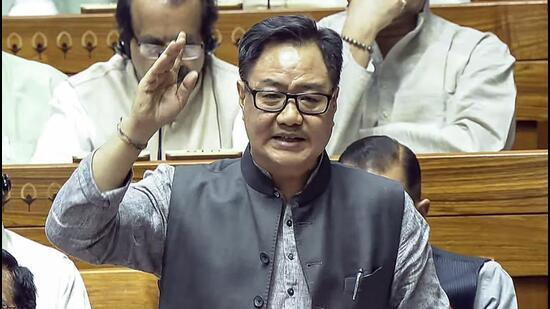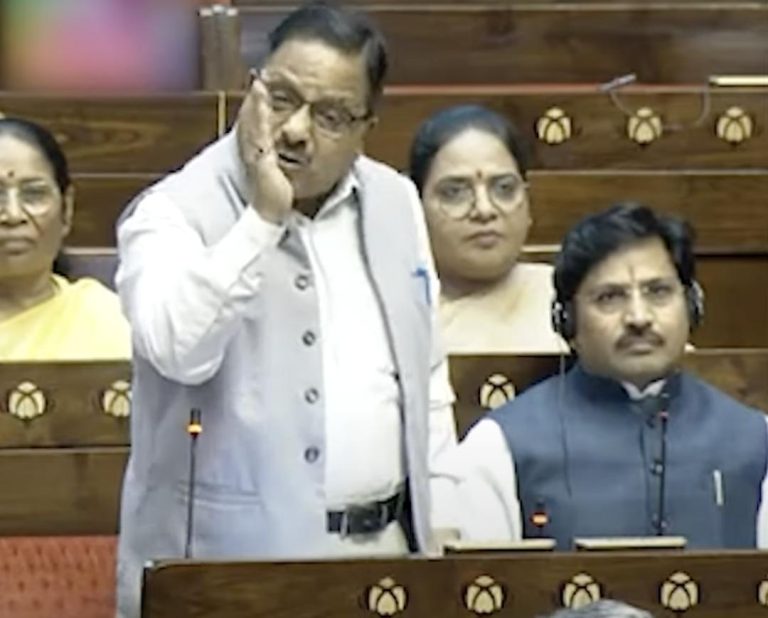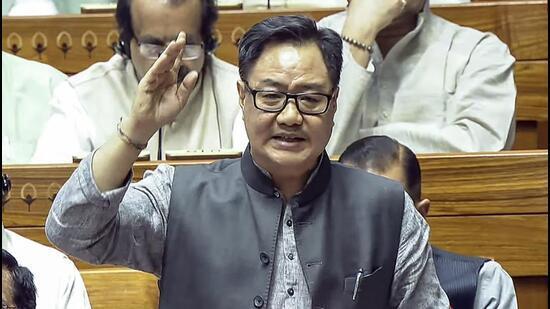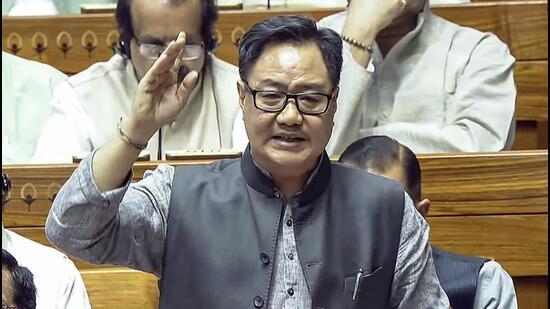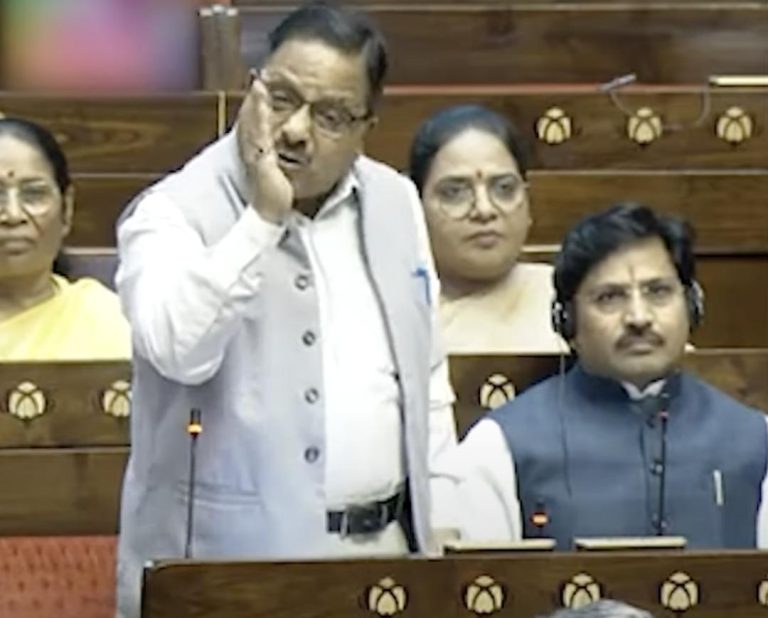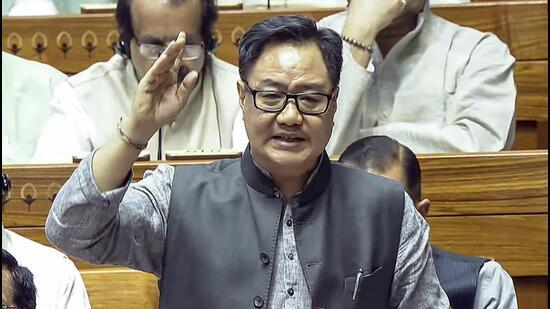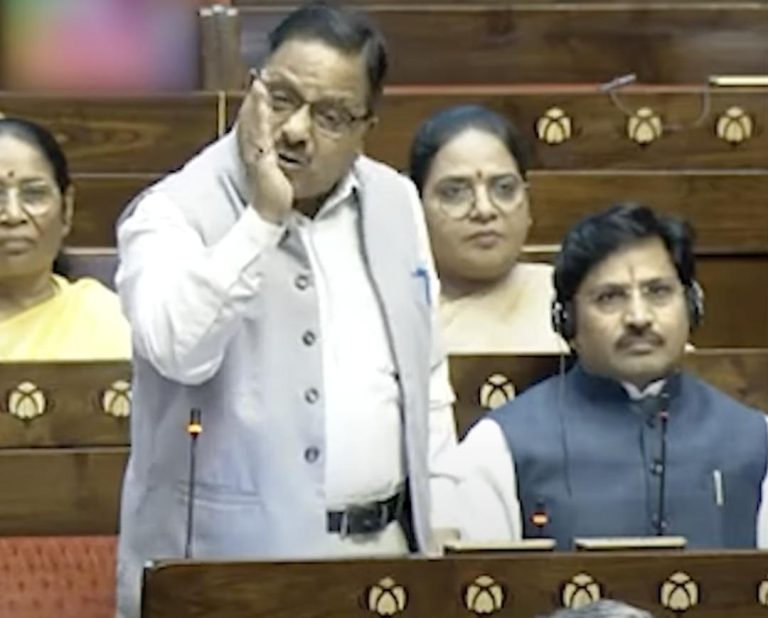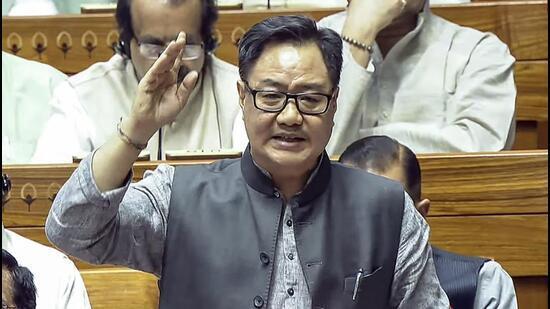
Opposition Creates Confusion & Leaves House: Rijiju in Rajya Sabha
The Rajya Sabha witnessed a heated debate on Thursday, with Union Minister Kiren Rijiju criticizing senior members of the opposition for creating confusion and raising issues, only to leave the House without staying back to hear the replies. The minister’s remark came during the discussion on the Waqf (Amendment) Bill.
Rijiju, who is the Minister of State for Home Affairs, targeted MP Kapil Sibal, who had compared the properties of Waqf bodies with those of other religious bodies. Rijiju claimed that Sibal’s statement was an attempt to create confusion and mislead the House. The minister argued that the Waqf (Amendment) Bill was aimed at streamlining the functioning of Waqf bodies and ensuring transparency in their activities.
Sibal, on the other hand, maintained that his statement was meant to highlight the disparities in the treatment of different religious bodies by the government. He claimed that the Waqf (Amendment) Bill was an attempt to curb the autonomy of Waqf bodies and undermine their powers.
The debate on the Waqf (Amendment) Bill was sparked by concerns that the government was trying to curtail the powers of Waqf bodies and restrict their ability to manage their properties. The opposition parties, including the Congress and the Left, have been criticizing the government for its attempts to interfere with the functioning of Waqf bodies.
Rijiju’s criticism of Sibal was not the only controversy that emerged during the debate. Other senior members of the opposition, including MP Anand Sharma, also criticized the government for its handling of the Waqf (Amendment) Bill. Sharma claimed that the government had not consulted the opposition parties adequately before introducing the bill and that it was an attempt to impose its will on the House.
The debate on the Waqf (Amendment) Bill is not the first time that the opposition has criticized the government for its handling of a bill. In recent months, the opposition has been criticizing the government for its attempts to push through bills without adequate consultation and debate.
The government’s handling of the Waqf (Amendment) Bill has been criticized by many experts and stakeholders. They argue that the bill is an attempt to undermine the autonomy of Waqf bodies and restrict their ability to manage their properties. They also claim that the bill is an attempt to curtail the powers of the Waqf boards and undermine their ability to function independently.
Despite the controversy surrounding the Waqf (Amendment) Bill, the government has maintained that it is a necessary step to ensure transparency and accountability in the functioning of Waqf bodies. The government has argued that the bill is aimed at streamlining the functioning of Waqf bodies and ensuring that their properties are used for the benefit of the community.
The debate on the Waqf (Amendment) Bill is a reflection of the deep divisions that exist in the country over the government’s handling of religious and cultural issues. The government’s attempts to impose its will on the House have been criticized by many opposition parties, who argue that they are an attempt to undermine the autonomy of religious and cultural institutions.
In conclusion, the debate on the Waqf (Amendment) Bill has highlighted the deep divisions that exist in the country over the government’s handling of religious and cultural issues. The opposition has criticized the government for its attempts to impose its will on the House and undermine the autonomy of Waqf bodies. The government, on the other hand, has maintained that the bill is a necessary step to ensure transparency and accountability in the functioning of Waqf bodies.
It remains to be seen how the debate on the Waqf (Amendment) Bill will unfold in the coming days. However, one thing is clear: the controversy surrounding the bill has highlighted the deep divisions that exist in the country over the government’s handling of religious and cultural issues.
